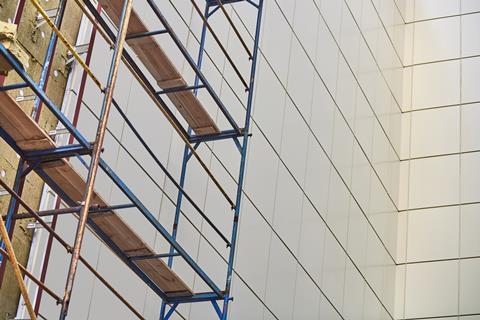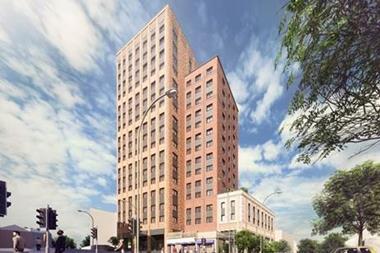The bravado and bluster from the government has so far not had the desired effect of expediting complex cladding remediation works.

Despite multiple attempts from industry to talk about a long-term solution, politicians have ignored requests to meet and opted to name and shame freeholders instead of working constructively with them.
The most recent parliamentary report into the matter offers a stark reminder that the government’s approach to fixing residential buildings with unsafe cladding is failing.
The Housing, Communities and Local Government Select Committee’s report into the progress of cladding remediation highlights the challenges that need to be addressed to solve this cladding crisis.
Although the additional £1bn Building Safety Fund announced in March is a step in the right direction, it is likely to cover only a third of buildings that are in dire need of remediation. Not only that, the fund’s application process, which is subject to a number of restrictions, is delaying access to funds.

In addition, where remediation works have begun prior to March this year, buildings will not qualify for the fund – a rule that punishes leaseholders and freeholders alike for being proactive.
It is clear that leaseholders should not have to foot the bill for regulatory failures that date back decades and have subsequently not been addressed by successive governments.
Likewise, freeholders, who bought into these buildings in the same good faith as leaseholders, should not be made liable.
Funding needed
As professional freeholders, we have a duty to ensure remedial works are undertaken. Supporting the delivery of these works requires a level of expertise and operational experience, all of which need to be underlined by significant government funding so remedial works can be completed in a timely fashion.
We are working with residents, pursuing insurance and warranty claims where possible, overseeing works and otherwise doing what we can to make buildings safe. However, there is an urgent need for funding to be unlocked so that leaseholders are protected from bearing the brunt of these costs.
It is time to have a real conversation about a long-term funding solution to the cladding crisis. We wholeheartedly endorse the committee’s suggestions to introduce a temporary levy on the sale of new-build properties and to recover funds from those organisations that were found to be responsible for safety defects.
The government must listen to – and work with – the industry to end three years of financial stress for leaseholders and ensure the protection of thousands of residents across the country.
The select committee has clearly understood the scale of the challenge when it comes to cladding remediation. It is now time for government to respond appropriately and act accordingly.
Mick Platt is chief executive of Wallace Partnership Group





























No comments yet